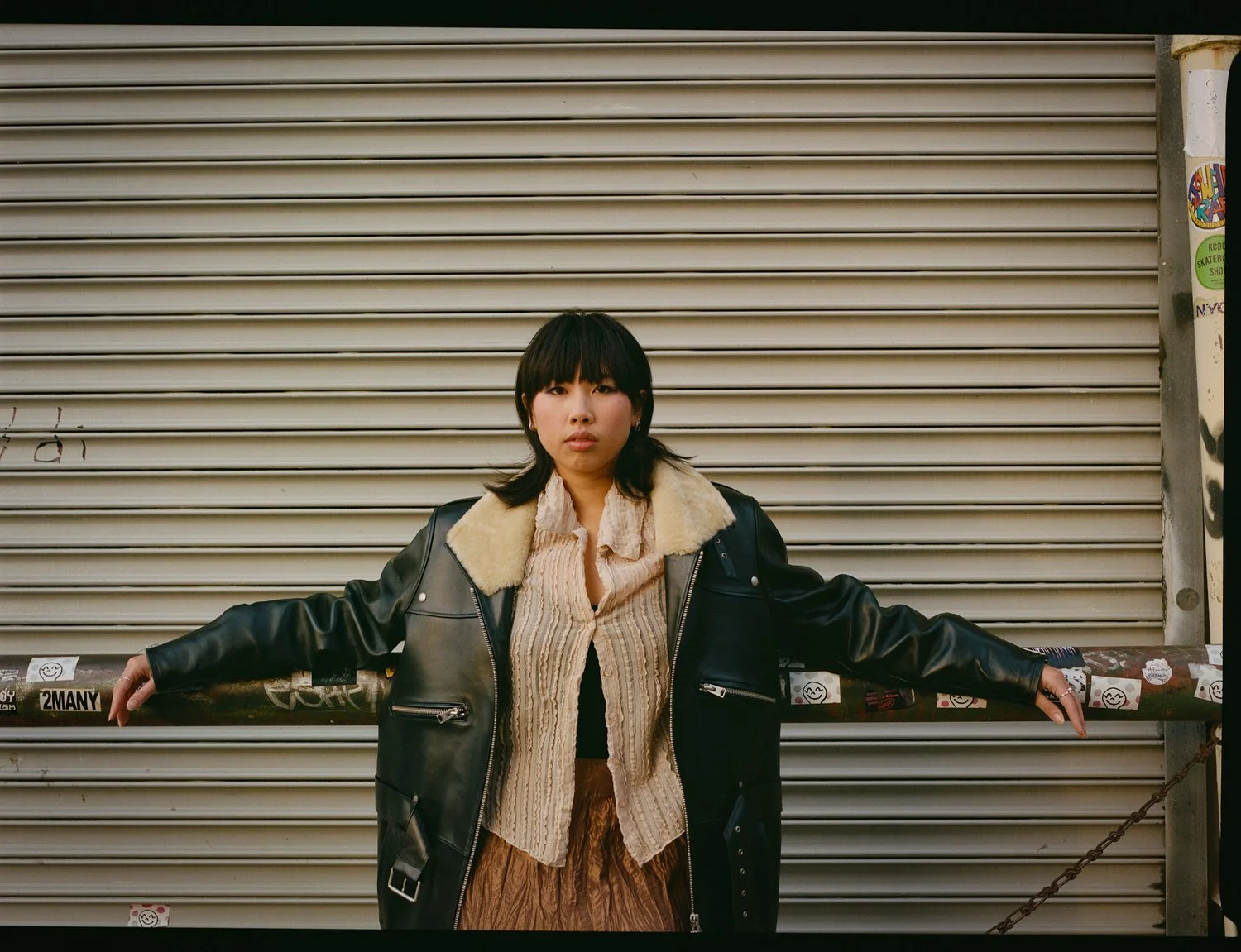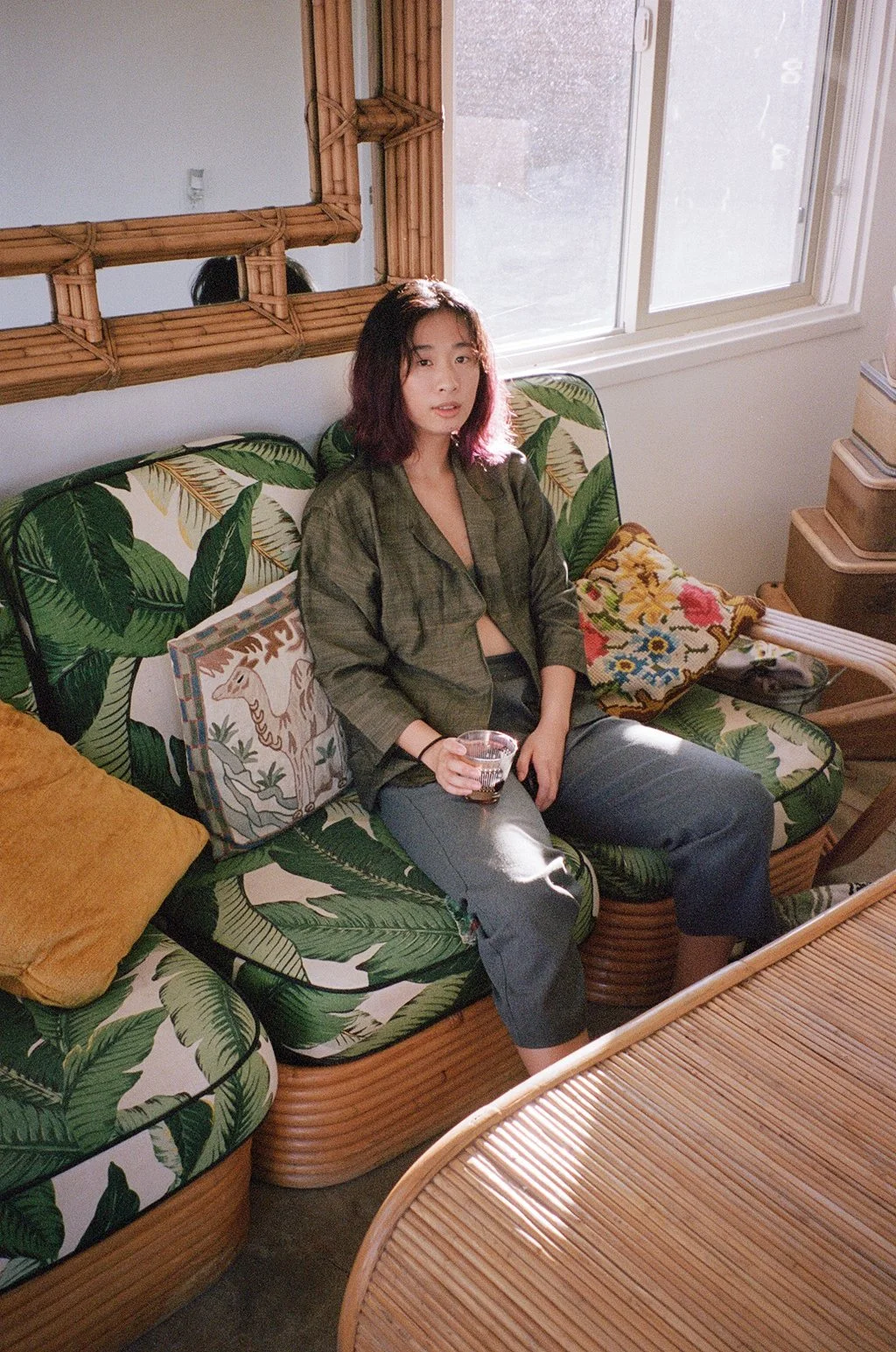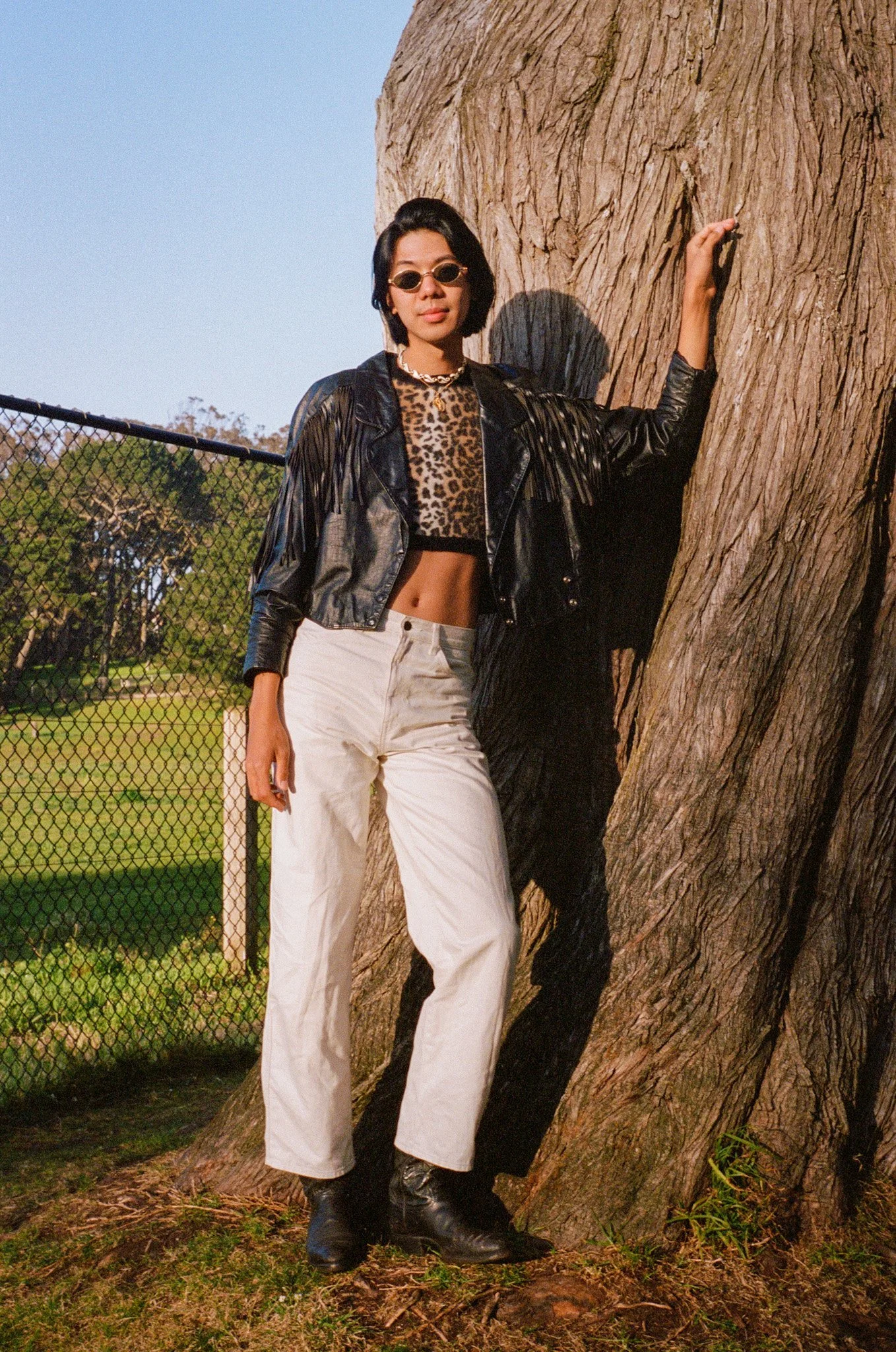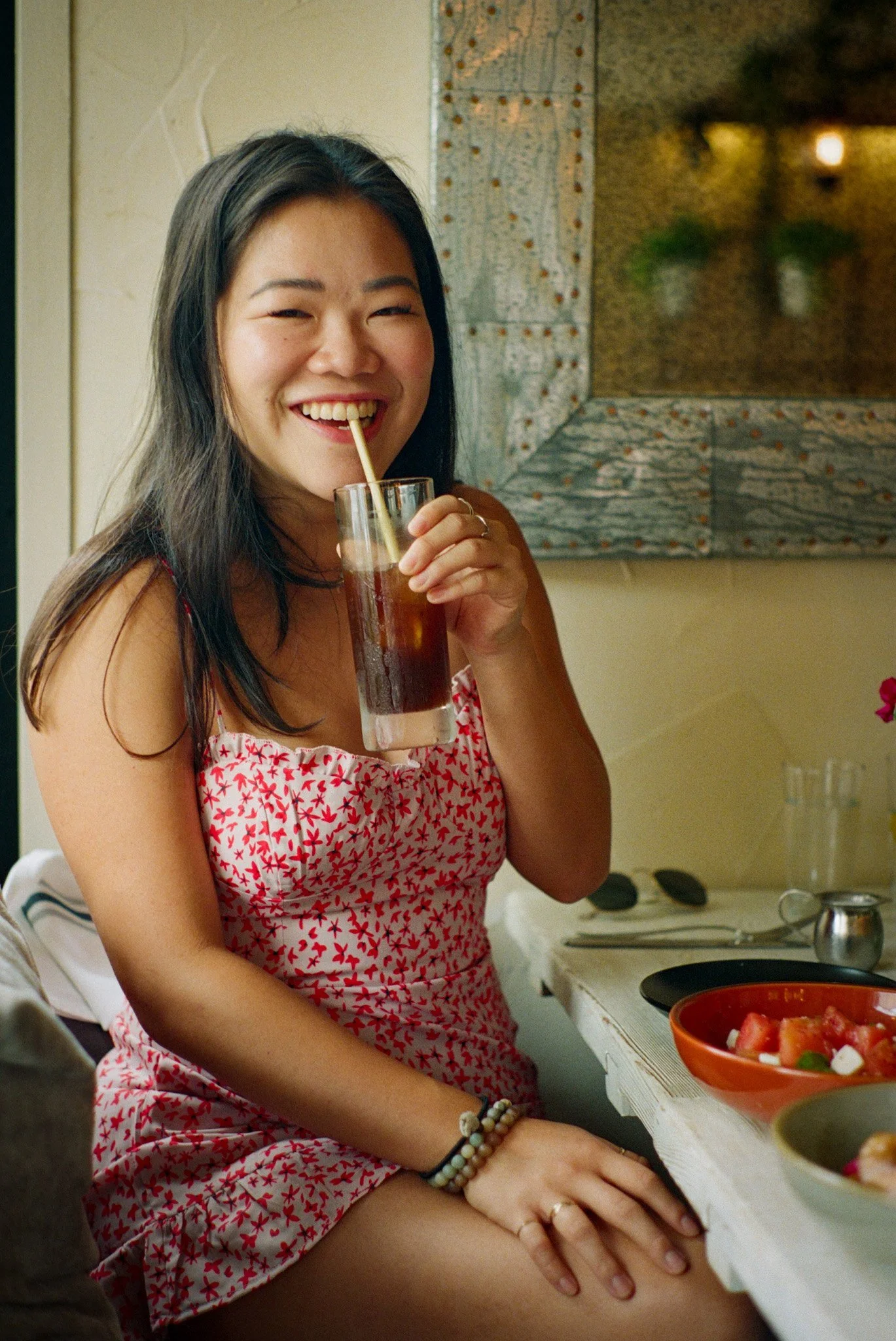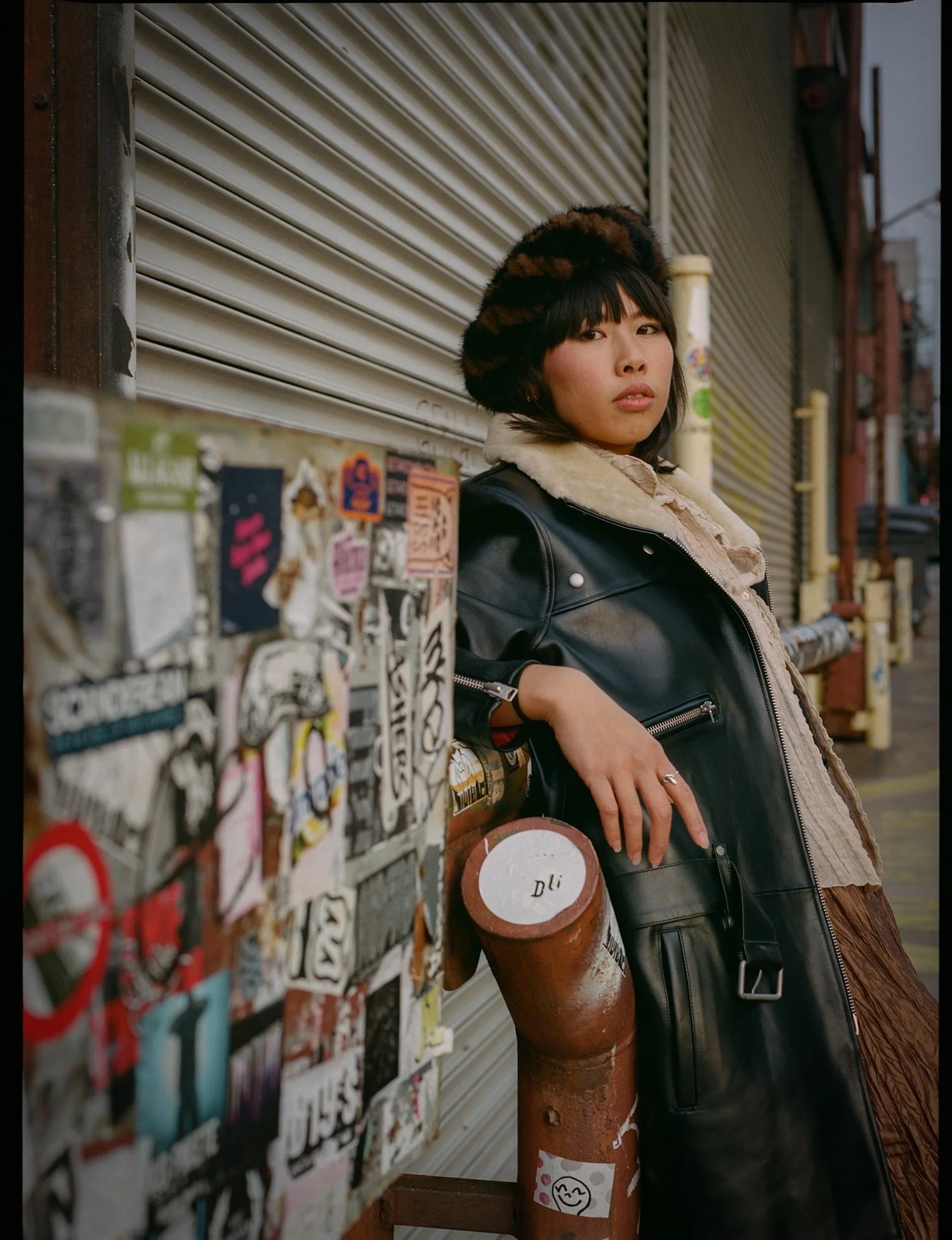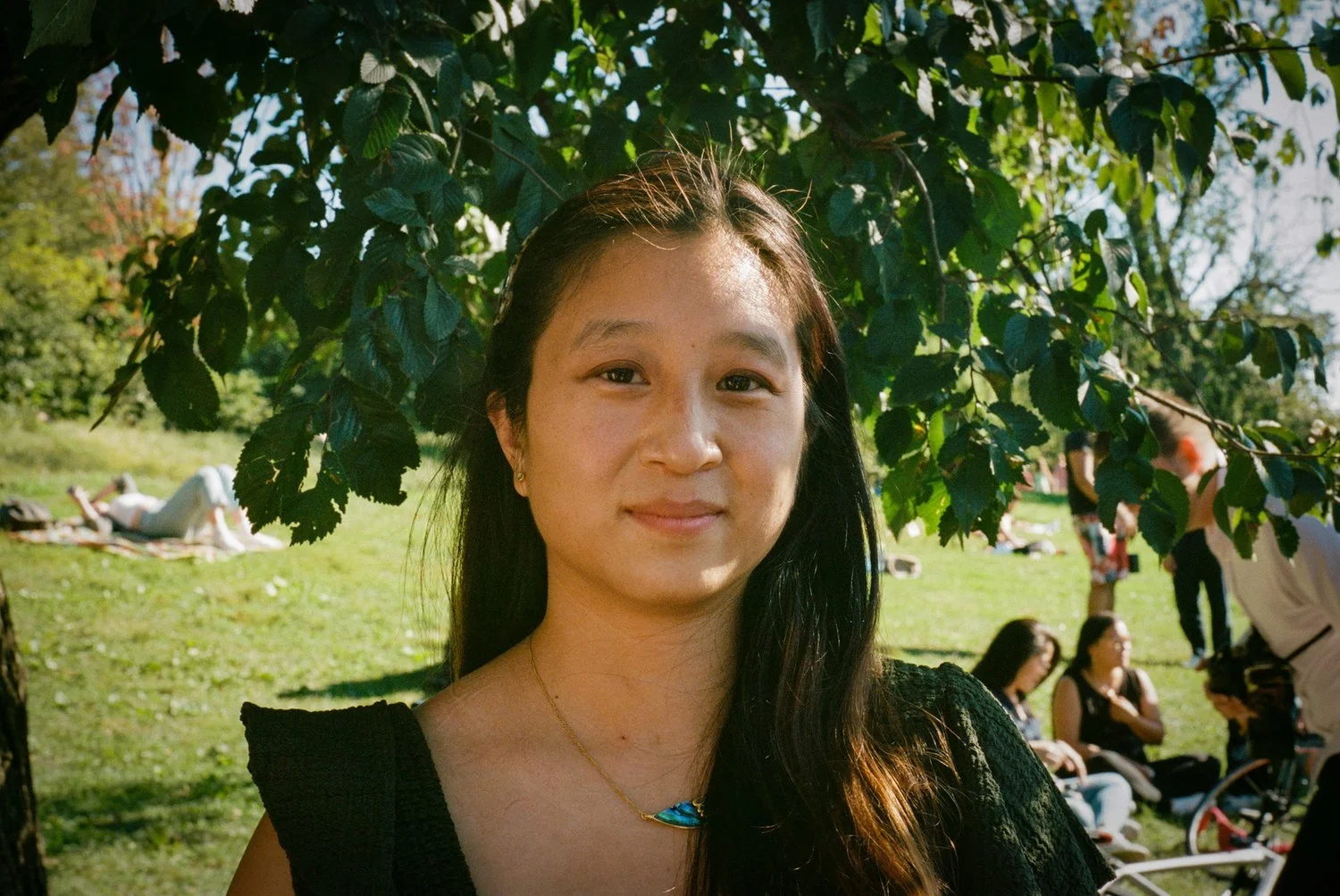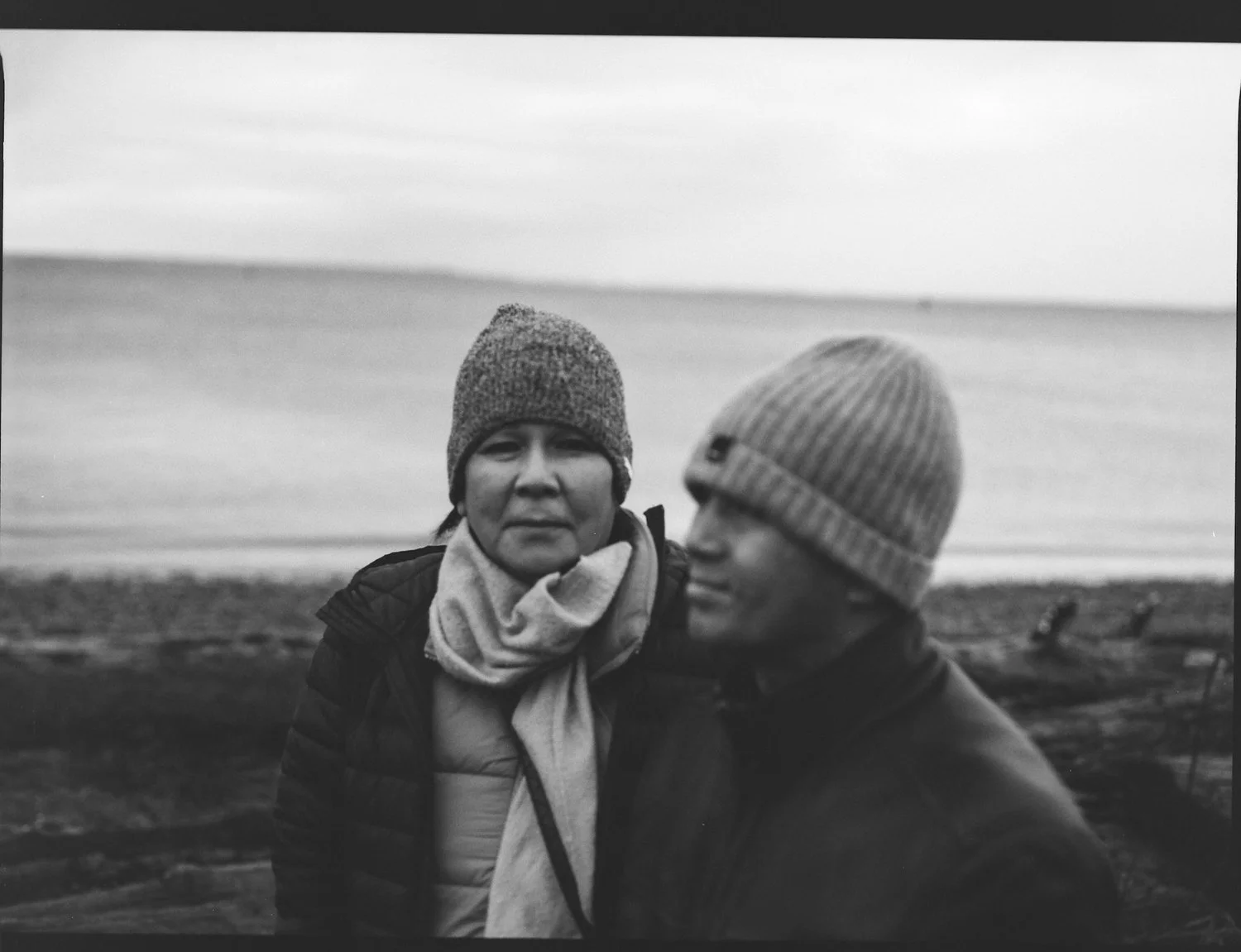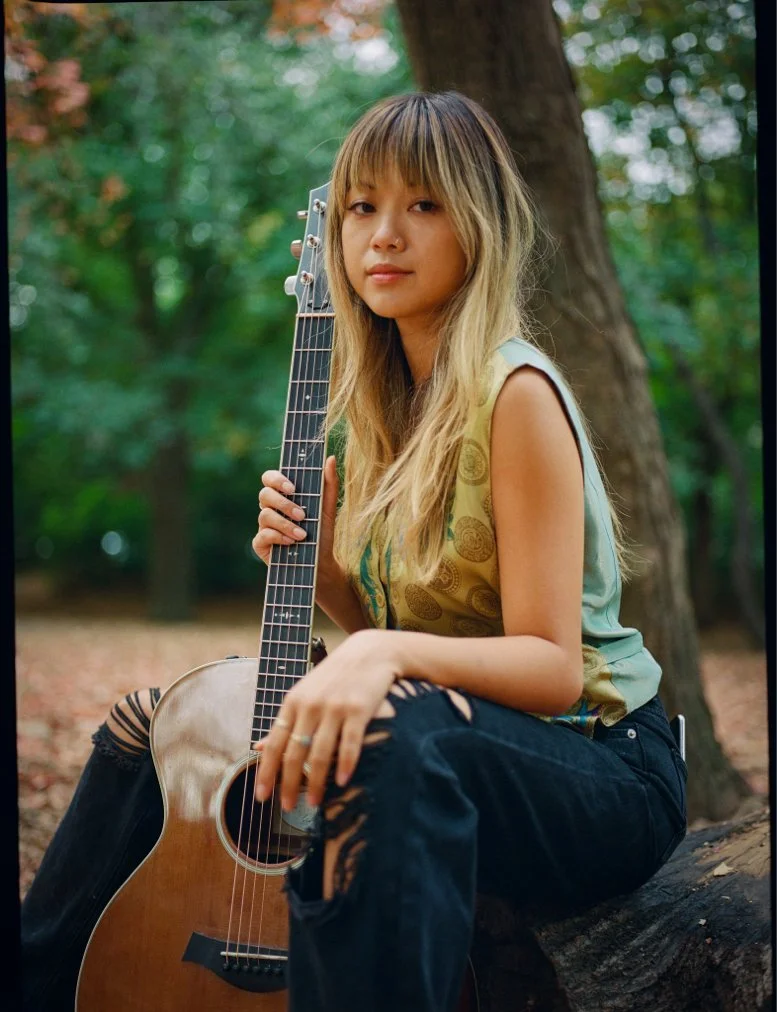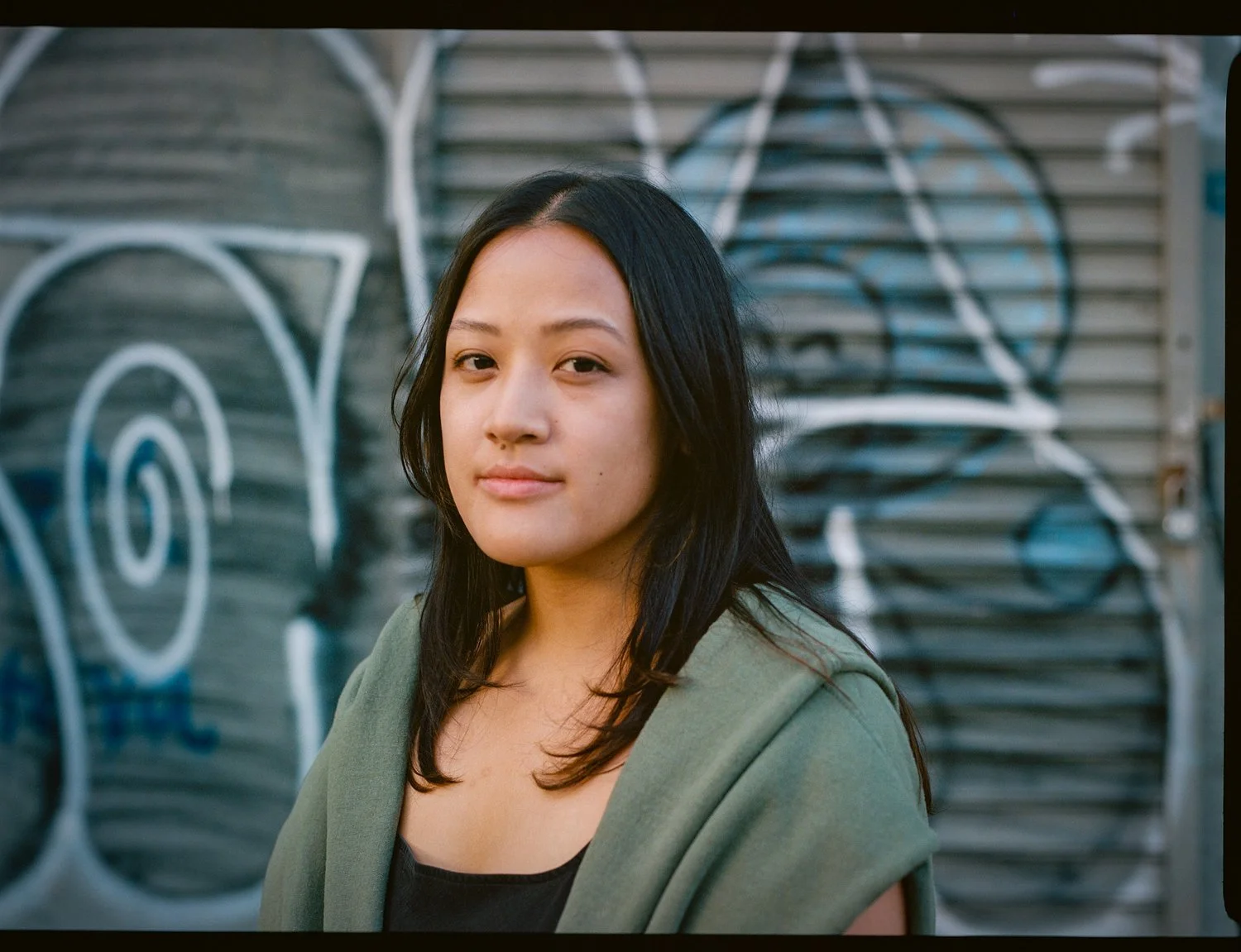Unhyphenated Explores the Asian American Experience
“Unhyphenated” is a portrait series of 8 Asian Americans and Canadians, focusing on producing a portrayal into who they are, empowering the participant, the Asian North American diaspora, and abolishing the use of and divisive connotation of the hyphen. As each person is introduced, we drop the hyphen as to remove any notions of “otherness” and assert ourselves as unique individuals who have reached across ethnic normative lines. Some of these individuals are first generation, some second generation, some neither, all from varying facets of the Asian nationality. The common thread is their affirmative display of selfdom that ultimately make up the diverse fabric that is the “American”. It is a story of what it means to be someone who carries on a rich cultural bloodline into the modern world, bridging the gap between the seemingly perpetual brink of two worlds, and challenging the consistent subtle blows of “what are you?” into “this is who I am”.
Grammatically, the hyphen combines two nouns. The conjoining of two nouns of nationality has historically been perceived as a person whose patriotic allegiance is divided, connotes foreignism, and that people of color are somehow not full citizens. Part American, part not American. As we remove the hyphen, “Asian”, “Chinese”, “Vietnamese”, “Filipino” becomes, as it should, an adjective to describe the type of American they are. Not only am I Vietnamese American, but I am also a curious American, a loving American, a driven American. Being part of an Asian American community is to be part of a growing and distinct segment of Americans. To be American is an idea, and to be Asian American is a further constructed, expansive, inclusive, inspirational dream. The hyphen simply is unnecessary for conveying the underlying true meaning.
Each portrait is coupled with a short but intimate Q&A with the subject, serving to pull emotional qualities out of the photo and focusing on their humanity, characteristics, and idiosyncrasies that make up their multi-faceted being. In response to the dramatic rise in hate crimes towards Asians caused by the pandemic, the individuals in this portrait series set forth their being, sharing their vulnerabilities, to counter any diminishing narratives surrounding the AAPI identity and uplift the spirit of cultural and personal eccentricity and individuality while still finding a place of belonging.
Emily Thach
Chinese Vietnamese American, from Los Angeles
Is there anything you seem to dream about over and over again?
Recently it’s been a lot about work situations. I have a demanding job and am starting to feel the burn out. My most reoccurring dream involves me not having control of a vehicle. Perhaps it’s my inner self reminding me that I can’t control all things in life.
When was the last time you cried, and why?
I don’t remember the last time I cried but I most vividly remember within the last 4 months being with my mom. Growing up with immigrant parents I was never encouraged to talk about my feelings or emotions with my mom. I had always felt a wall with my mother and a general lack of emotional bonding with her. After processing my childhood experiences with my therapist, I finally gathered the courage to speak to my mother about how I was raised. We cried for an hour as she shared intimate details of her circumstances while raising me and how she had always wanted to keep her emotions hidden from hurting me. This ending up being the catalyst to a more open and stronger relationship with my mom.
When have you felt your biggest adrenaline rush? What was it?
My biggest adrenaline rushes are when I travel. My most frequent travel buddy is Tracy and I remember waking up at 3AM in Kyoto to hike to the top of Fushimi Inari Shrine. Hundreds of red torii gates lined the path up to the most gratifying sunrise.
Edward Zhu
Chinese American, from China
Describe your perfect day
My ideal day would look like a Liziqi video, but with all my family and friends around me. Her videos are so calming to watch and I’m always amazed at the diversity of what she can make from what she harvests from the land. I just want to live in the mountains with everyone I love, growing our own produce, and eating amazing food every day.
What would you sing at karaoke night and why?
I would probably sing a Disney song like ‘A Whole New World’ because it’s fun, easy, and other people can sing along.
What is the craziest thing you’ve ever done, and would you do it again?
The craziest thing I’ve ever done was probably volunteering to do snow leopard research for a month on the Tibetan plateau when I was 16. I lived with a few graduate students in a small monastery and explored the beautiful alpine grasslands every day. I would absolutely do it again despite the altitude sickness.
Faith Tan
Singaporean American, from Singapore
What is the best place you’ve ever been to and why?
Maui, Hawaii. It is an island filled with natural beauty- gorgeous beaches, waterfalls, forests, mountains, and volcanoes. The biodiversity there is amazing, and the energy - the mana and the aina - of the lands are incredibly potent and powerful. It’s a place I feel deeply connected to and moved by; something so special, worth protecting and preserving.
What's something you'd like to try doing, but haven't worked up the nerve yet?
Free diving! Or diving in general!
What was the biggest change you faced over the last year?
I’ve been nomadic since late 2020. It’s a fun and exciting lifestyle. You’re constantly traveling and experiencing new things… but, I’ve really had to slow down the pace of my travel in order to make it sustainable. I’ve really enjoyed spending more time in fewer places. Living simply, with fewer things. Learning how to build routines like working, cooking, and exercising in new places. And in the face of constant change, asking myself- what makes me happy, what do I need to live a happy and productive life? Taking these big questions and boiling them down into short and simple answers.
Sam Thach
Chinese Vietnamese American, from Maryland
What do you think is the most beautiful thing you’ve ever experienced and why?
After I graduated college, I spent a lot of time visiting Buddhist monasteries. It was during these years that I, for the first time, felt like I could learn to make peace with all the circumstances of my life- all of my “imperfections”, traumas, and sorrows. The wisdom of the late Thich Nhat Hanh, the great zen master, were completely life changing and instrumental in my healing. Those were some of the most beautiful moments of my life; at the same time, some of the most raw, emotional times. Because I was healing, and when a wound heals, it hurts, it itches, it burns, sometimes the wound opens back up and the healing process starts over again. And it’s quite hard to explain because it was just this feeling, time, and place. A lot of it happened internally. It was also during this period of my life that I began to reconcile the intergenerational trauma within myself and with my family; this might sound completely foreign to some people, or perhaps not, but before, I couldn’t even say the words “I love you” to my Dad or my brother. In short, I think my arrival at love - the ability to both give and receive love, has been the most beautiful rose in my life, grown out of thorns.
What thrills you?
Learning, loving, taking dance class in a studio with delicious views of the city, taking long walks and seeing something completely absurd, having silly conversations with strangers (I’m the talks-to-strangers type), discovering a new song, and listening to it on repeat for a few days.
How have your notions of what it means to be an Asian woman changed over your lifetime?
Well, I think, when I was old enough, I grew to understand that Asian women have historically been seen as objects- like porcelain dolls collected from colonial expeditions to the Far East, fragile, inanimate, lovely, ornamental. And so, I guess my direct response to that when I was a teenager was to be the complete opposite- fiery, volatile, coarse, and outspoken to the point of being rude at times. Over the years, I feel like I have calmed down quite a bit, realizing that I was being dishonest with myself in externalizing my anger. Why can I not be both strong yet delicate? Opinionated yet willing to challenge my beliefs? Feminine and masculine? When I consider the semantics of yin yang, I realize that I, as does everyone, have both aspects of the yin and the yang in them- and so I try to let myself exist in these dualities now. To me, being an Asian woman means to just flourish together in our singular existences.
Kara Chin
Chinese American, from New York state
What is your fondest memory of this year so far?
On a much-needed break in Hawaii, I saw sea turtles everywhere. I saw two of them crawl onto the beach to rest. I swam among them while scuba diving. They swam beneath me while I waited for the next wave to surf. They bring me a sense of calm with their majestic movements.
How do you find inspiration?
I’m a visual person who spends so much time searching for and capturing beauty. Beauty in the way the light falls or casts shadows. Beauty in the accidental symmetry or asymmetry of things. Beauty in the moment that is about to pass. I like to get lost in these moments.
How have your notions of what it means to be an Asian woman changed over your lifetime?
I have felt the weight of how others define me, but no one except yourself can do that. I’m a born-and-raised suburban New Yorker but saying that doesn't always translate to others as “being American.” I'm frequently labeled as a foreigner. "You don't look American," they say. "Anyone can look American," I reply. Then the assumption is that you're a child of immigrants, if not an immigrant yourself — of which, I'm neither. At what point can you be seen as an American if you have an Asian face? My sense of belonging is consistently challenged. It has come up when I don't want to talk about it, so I resisted speaking about it for a long time. I've since lived in China, where I looked like I belonged when in fact I didn't. Then I came back to New York. I remain an outsider in these worlds but I'm glad I took that journey. I’ve learned to embrace being both Chinese and American as its own unique experience. As an adult, I look for power and strength within this identity, especially in opposition to the stereotypes Asian women are subjected to.
Tam Vu
Vietnamese Canadian, from Vietnam
What advice would you give to your 18-year-old self?
Thinking back to my 18-year-old self, my advice to the younger generation is to finish University.
What accomplishment are you most proud of?
The accomplishment that I am most proud of is studying English and be able to speak it in a new country that is now my home. I am also proud of raising my kids.
How have your notions of what it means to be an Asian women changed over your lifetime?
According to my traditional notion, the Asian women typically stays home, performs household duties, and looks after the children. Nowadays the Asian woman can go to school, go to work, do everything that men can do. That is a big change.
Amy Nguyen-Walker
Vietnamese American, from Los Angeles
If you were to describe this year so far (2022) for you in 3 emotions, what would they be?
Determined, grounded, transformative
How do you find inspiration?
Collaborating with other artists, connecting with not only my background and history but also my parents’. Continuing to work on my self growth to better know myself and understand my emotions. Saying yes to opportunities that bring me out of my comfort zone.
What is your definition of romance?
The smallest things - the “this made me think of you’s”, the comfortable silences, inside jokes. I love finding the romance within my platonic relationships. They’re often my biggest loves and heartbreaks, maybe that’s why.
Leslie Sy
Filipino American, from New York City
What is the biggest hurdle you’ve ever overcome in your life?
I’ve been on my own for some time now in this big city and despite having good friends, I’ve struggled with feeling lonely. I’d say feeling good about my independence is the biggest hurdle.
Are you a different person now?
I’m an entirely different person than I was five years ago, last year, last month. I’m more confident in myself, loving to myself, so much so that I don’t feel that hurdle of loneliness as much anymore. I think understanding my own self is what makes me feel found and less alone.
Is there anyone who’s made a profound impact on you?
My mom. She’s always there for me and was able to do a lot of things on her own. Can’t help but believe that I can, also.
Photography and words: Tracy Dong

